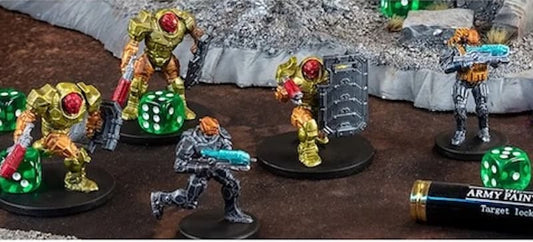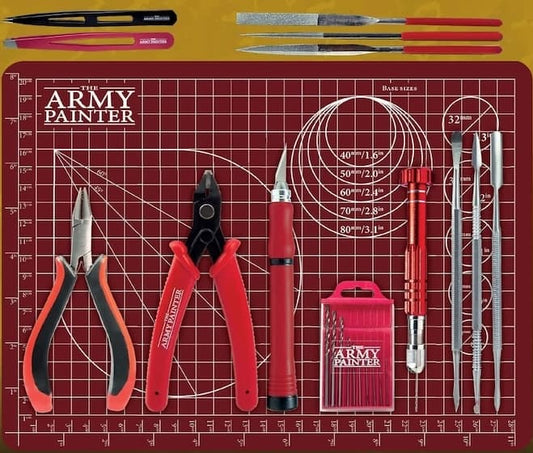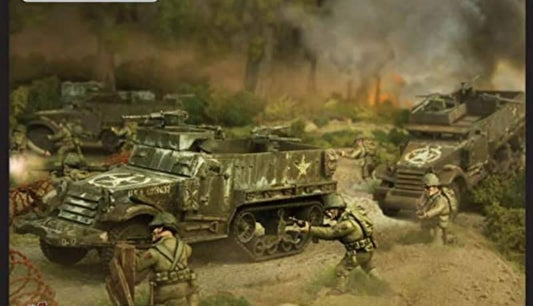Welcome, all first-time Dungeon Masters. If you are standing here, at the precipice of greatness, there is a good chance that you’re familiar with tabletop games. More specifically the tabletop board game Dungeons and Dragons because let’s be honest, few board games top D&D. Most DMs decide to give DMing a shot after playing through a campaign either to feel the rush of controlling the player’s fate or to give the forever DM a break. Regardless of why you are here, let’s go over a few tips for getting through this adventure.
Tip #1 - At session zero, sit down with your players and go over expectations. What classes and races are you allowing your players to use. What kind of content are your players comfortable with. There will be some cases where extreme violence that may include children could trigger a player. There may be players uncomfortable with a play by play involving the party Bard. It is always a good idea to sit down with players and go over expectations and see where they draw their lines. Yes, this is just a game, but you want this experience to be enjoyable for your players.

Tip #2 - Where is your world? Are you running an official campaign based in the world of Abeir-Toril or are you planning on homebrewing the world and everything in it? Once you’ve decided, make sure that your players are aware of any different rules you may have for your table. This is especially important if you are running tabletop games for kids. Also, on the flip side of this coin. If you decide to run a campaign for kids based on a cartoon that a child watches, do your research. It will be much more immersive for the child if you use names and places from the show that they would recognize. Tread lightly, mistakes you make will be brought up by said child until the end of forever.
Tip #3 - Know your stuff but don’t plan too far ahead. When you prepare for a session, have a list of names and a few well-done NPCs for your players to interact with. You can use a computer, tablet, or phone to access websites for random shop names and items. Be prepared for your players to completely ignore the fact the Baphomet has materialized in the middle of town because they found a stray kitten to adopt. No session ever goes to plan, but don’t stress about it. They’ll make it back around to the main quest with a little bit of guidance.

Tip #4 - Practice lying. Remember that your players are only as good as their rolls. You’ll want to be able to convincingly tell them that the doppelganger they have been chatting up for the last hour is totally human and not going to eat them in their sleep. You’ll also want to be able to lie about your dice rolls. Nothing is more devastating than rolling that critical hit on the Wizard with 2 hp left during the first encounter of a campaign.
Tip #5 - The entire game should be enjoyable for players. Most players choose to play with the crit fail/success rule. Make sure that the crit fails are just as epic as the crit successes. Did the player roll a one while trying to intimidate that brute at the bar? He thinks the player was flirting and now said brute leaves them love poems and flowers outside their door. On the subject of rules, please remember that they really are more guidelines than actual rules. Always, always, always choose player enjoyment over rules-lawyering.
Tip #6 - Not every session needs to be combat-oriented. You might be part of a group that is combat-focused and intent on overtaking over the world, but even these groups will have shopping days. There are groups that get together to level and craft. If a player cannot make it, sometimes the group will meet and talk about things done in the player’s downtime. Session zero is typically just your players crafting their characters. Sometimes this is just a character sheet but this could also mean painting D&D miniatures. Some groups will buy D&D miniatures bulk style while others choose custom D&D miniatures. D&D paper miniatures, D&D painted miniatures, and D&D miniatures unpainted are all viable options. Unpainted Dungeons and Dragons miniatures are used for Dungeons and Dragons painting. This tends to be the cheap D&D miniatures option and lets players customize the appearance of their character.
As the DM, the sessions will typically take place in your home, unless you want to pack up your supplies and travel. If this is the case make sure you have a table and space to play and craft. Some close-knit parties will often exchange gifts around the holidays such as unpainted miniatures like this set of Aasimar fighters, compliments of Nolzur’s marvelous miniatures, or a miniature paint set such as this Army Painter set, compliments of Nolzur’s marvelous pigments.
If the DM is into D&D miniature painting, they may give painted D&D miniatures to their players. D&D boards, battle mats, dice, and books are common gifts among players and DMs. Some groups take these customs to the extreme and learn how to sculpt or knit or commission art for their groups. Typically these groups have been together for a few years and have played the same PCs for a while. If this sounds like fun to you, bring it up to your players and gauge their interest in a gift exchange.
With all of that being said, congratulations on your first campaign. It is fun, exciting and challenging. Always remember to take a breath and step back from tense moments and try to steer the table gently onto the main story quest. Don’t be hard on yourself, by session five or six nobody will suspect you of being a newb. If you get stumped or are unsure you can find support from DM specific groups on social media. We are always welcoming of new DMs in our community.

Written by: Melissa Crosby
Also check out This list tells you why D&D 5e is the best edition of Dungeons and Dragons!




